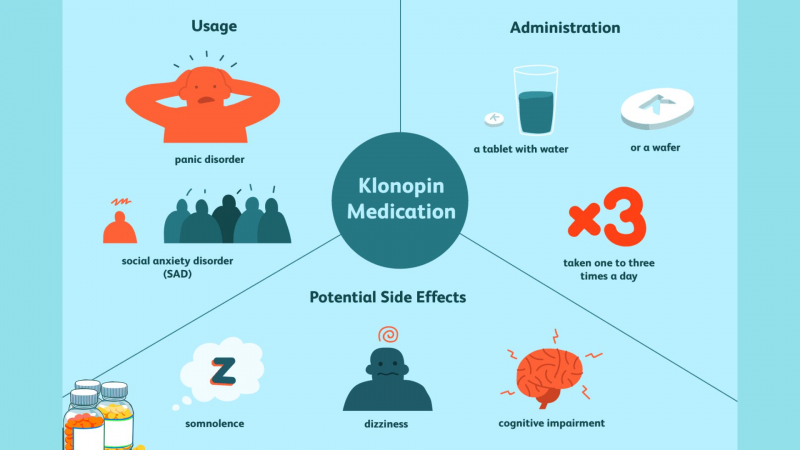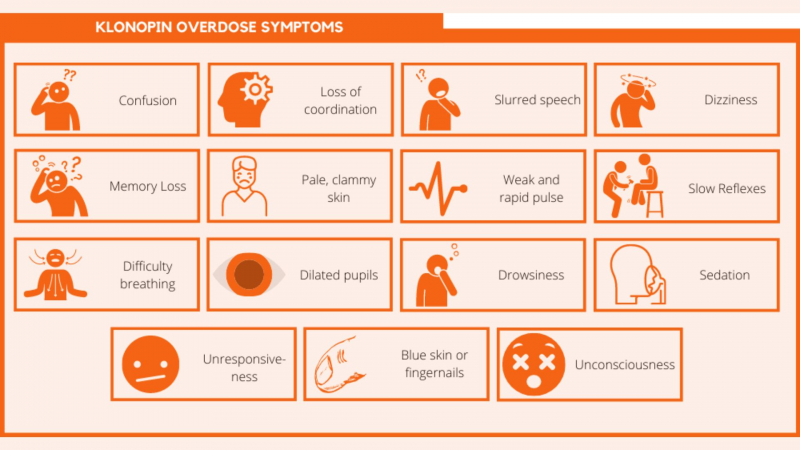Downsides
If you are between the ages of 18 and 60, do not take any other medications, and have no other medical conditions, you are more likely to experience the following side effects:
- The most common side effects reported are drowsiness, sleepiness, or dizziness. Any of these side effects could impair reaction time, impair a person's ability to drive or operate machinery, or increase the risk of falling. These effects may be exacerbated by alcohol, which should be avoided.
- Aches and pains, palpitations, memory loss, headache, tiredness, and a variety of other side effects have been reported.
- Rarely, respiratory depression can occur (unusually slow and shallow breathing). The risk increases with higher clonazepam dosages, in people with pre-existing respiratory conditions, or when clonazepam is combined with other medications that cause respiratory depression (such as opioids).
- Clonazepam has the potential to be addictive, causing both emotional and physical dependence. The lowest possible dose should be used for the shortest amount of time. Drug users may seek out clonazepam supplies.
- Withdrawal symptoms (such as convulsions, tremors, cramps, vomiting, sweating, or insomnia) may occur if you stop suddenly; taper off slowly under the supervision of a doctor.
- Clonazepam, like other anticonvulsants, may increase the risk of suicidal thoughts or behavior, which may be noticeable as early as one week after starting treatment.
- Women should not breastfeed their children while taking clonazepam.
- Clonazepam may increase the risk of depression, conceal depression, or increase the risk of suicidal ideation. Keep an eye out for signs of mood deterioration.
- Sometimes paradoxical reactions (the opposite of what is expected) occur. Anxiety, agitation, rage, sleep disturbances, sexual disinhibition, or hallucinations are some of the symptoms.
- Other medications that cause sedation (such as alcohol, antipsychotics, antidepressants, or sedative antihistamines), clozapine, probenecid, and valproate may interact with it.
- Some people may not be able to use it, including those who have pre-existing respiratory disease (such as COPD or sleep apnea), acute narrow-angle glaucoma, a history of drug or alcohol abuse, are at high risk of falling, are pregnant or breastfeeding, or have kidney or liver disease. The elderly and the frail may be especially sensitive to the effects of clonazepam.
Seniors and children, people with certain medical conditions (such as liver or kidney problems, heart disease, diabetes, seizures), or people who take other medications are more likely to experience a broader range of side effects.









